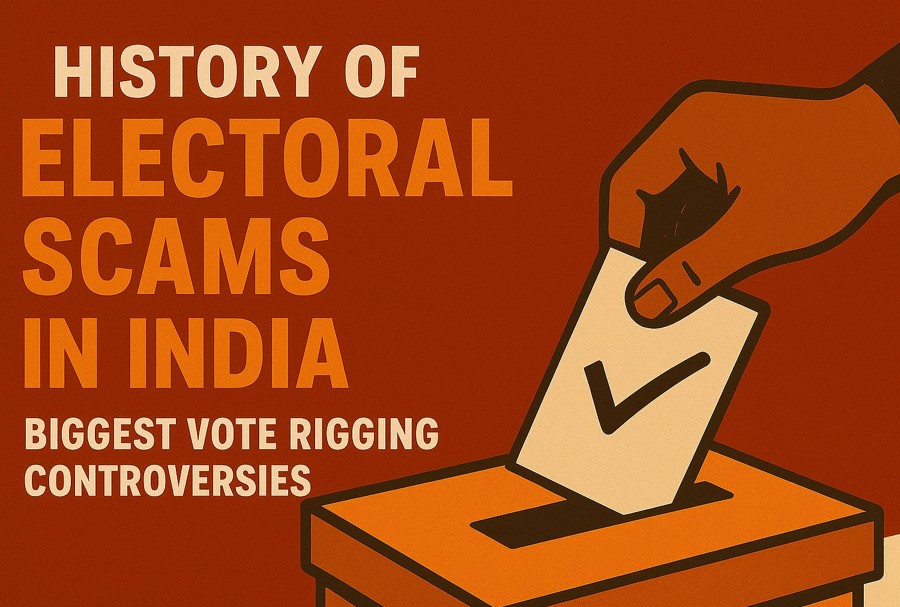Introduction
India is the world’s largest democracy, but it has also seen its share of electoral scams and vote rigging controversies. From booth capturing in the 1980s to modern-day allegations of EVM tampering and “Vote Chori,” these incidents have shaped public perception of elections. Let’s walk through the most notable cases, their impact, and what lessons they hold for the future.
Table of Contents
Early Years (1950s–1970s) – Growing Pains of a New Democracy
The first general election in 1951–52 was a massive exercise with over 176 million eligible voters. While largely free and fair, manual voting systems back then left room for ballot stuffing and miscounting.
- 1967 Elections: Marked by increasing political rivalry and the first recorded large-scale booth capturing in Bihar.
Booth Capturing Era (1970s–1990s)
Booth capturing — where armed goons physically take control of a polling station and cast fake votes — became infamous in states like Bihar, Uttar Pradesh, and Andhra Pradesh.
- 1984 Bihar By-Elections: Widely considered one of the most notorious cases of mass booth capturing.
- 1990s: Repeated incidents forced the Election Commission to deploy central security forces at polling stations.
Post-EVM Era (2000s Onwards)
Electronic Voting Machines (EVMs) were introduced to curb ballot stuffing, but they brought new controversies.
- 2009 General Elections: Allegations of EVM manipulation by opposition leaders, though the EC denied any tampering.
- 2017 Uttar Pradesh Elections: Opposition parties accused the ruling party of EVM hacking after a landslide victory; EC invited experts to test EVMs, but no proof was found.
Recent “Vote Chori” Allegations (2019–2024)
- 2019 Lok Sabha Elections: Claims of faulty EVMs and voter list errors; EC called them baseless.
- 2024 General Elections: Rahul Gandhi and opposition leaders accused the ruling BJP of “Vote Chori,” or “Vote Chor“citing cases of duplicate voters, missing names, and suspicious voter turnout numbers. The Election commission demanding evidence if Rahul Gandhi unable to provide then EC can reject the allegations.
Impact on Democracy
- Erosion of Public Trust: Repeated fraud allegations, proven or not, reduce faith in the election process.
- Electoral Reforms: Incidents led to voter ID cards, VVPAT paper trail systems, and stricter polling station security.
- Political Weaponization: Fraud claims are now a common strategy to rally supporters and discredit opponents.
Lessons Learned
- Technology alone isn’t enough — Transparency and oversight are key.
- Stronger laws & faster trials — Election fraud cases should be resolved quickly to maintain trust.
- Public awareness — It’s important for voters to be aware not only of their rights but also of the boundaries and limitations within the electoral system.
Conclusion
The history of electoral scams in India is a reminder that democracy is not self-sustaining — it needs constant vigilance. While major reforms have reduced large-scale fraud, allegations like “Vote Chori” keep the debate alive, showing that credibility is as important as the result itself.

I support You for ECI Investigation